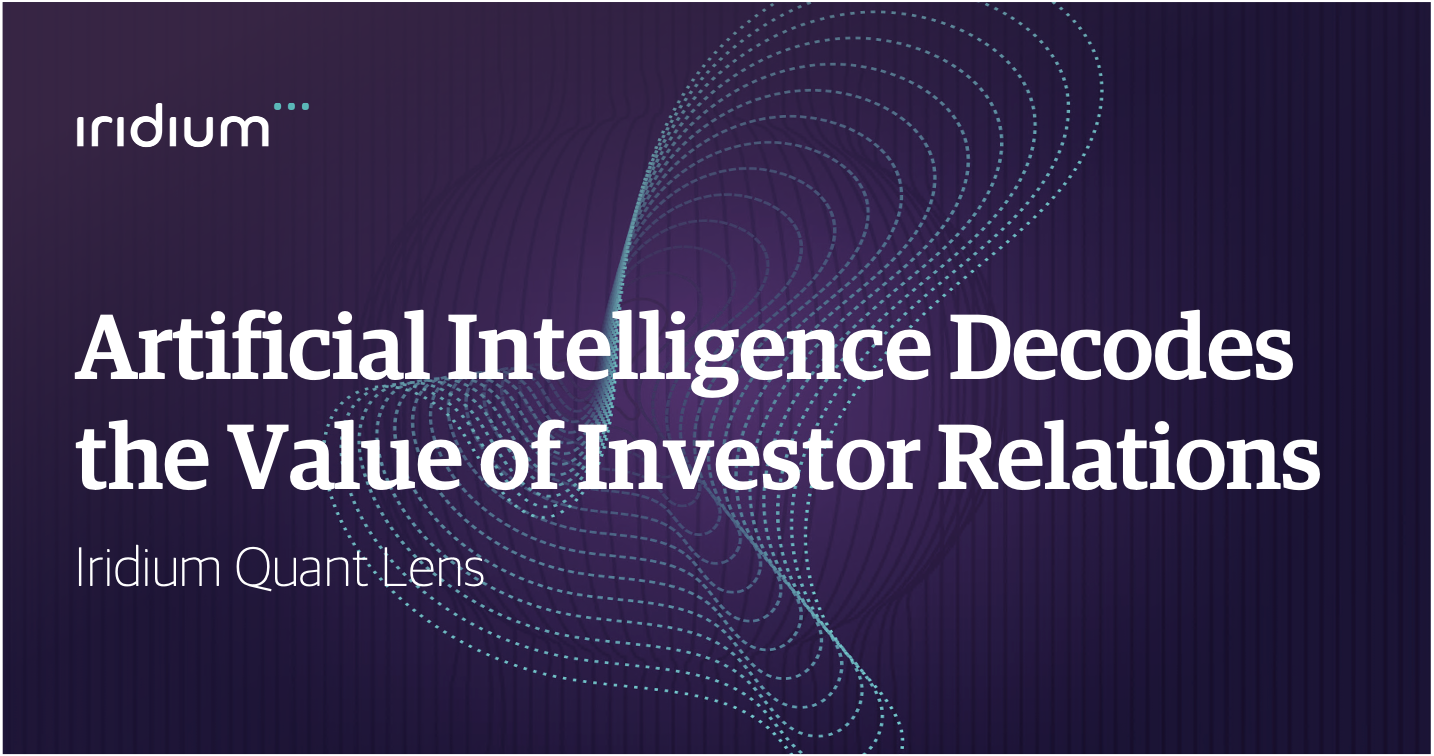Press Release
Iridium Unveils the World’s First Machine Learning Algorithms that Decode the Value of Investor Relations
02 September 2020 | Admin

- Four different Machine Learning algorithms were deployed to analyze 9 million data points across 673 global banks, including 65 GCC banks, to explain up to 98% of what drives bank valuations
- Iridium Quant Lens shows that Investor Relations (IR) adds up to 24.2% of GCC bank valuations
- IR Quality is the 3rd most important factor impacting Price/ Tangible Book Value of GCC banks
Dubai, UAE, 2 September 2020 - The quality of investor relations can add up to 24.2 percent to a listed company’s market capitalization, according to a new data science project by Iridium Advisors that uses four different Machine Learning algorithms to calculate the impact of 30 financial and non-financial valuation drivers.
Oliver Schutzmann, CEO of Iridium Advisors, said: “Many boards and management teams in emerging markets have not yet invested sufficiently in investor relations because they do not fully understand the value it adds. To this background, we sought to take a scientific and systematic approach to show how the business value they create can be translated into market value, and thereby quantify the value of investor relations. With the insights gained from Iridium Quant Lens Machine Learning algorithms, we can now help business leaders understand what exactly drives their market value and show them how to unlock material valuation potential.”
The Iridium Quant Lens machine learning (ML) platform was built on the foundations of classic finance theory that a company’s stock price is derived through an evaluation of risk relative to return factors by equity market participants. In order to identify the financial and non-financial drivers of bank valuations, four different machine learning algorithms were deployed to consider 30 risk and return metrics, compiled from over 9 million data points, and covering 673 banks globally. The Quant Lens algorithms were run separately for all banks and for 65 GCC banks over different time horizons ranging from 1 to 10 years.
Iridium's algorithms proved successful in decomposing valuation drivers and, in aggregate, explained 86 percent of valuation variability for the test data set and 91 percent of the full data set. Furthermore, some individual models, such as the 3-year models for GCC banks, explained up 95 percent of the test data set and 98 percent of the full data set.
A significant finding of this study was that the quality of investor relations – based on the classification into IR-Agnostic, IR-Basic and IR-Emerging archetypes - is a highly material factor consistently influencing valuations of GCC banks. In fact, for most models it was the third most important factor impacting price to tangible book value (P/TBV) and explained 6 percent of share price variability on average.
In addition, the impact of upgrading investor relations is significant, with each upgrade step in a 2-stage upgrade path, commanding a 12 percent valuation premium on average and a complete move along the investor relations upgrade path adding 24 percent to market capitalization
To illustrate the impact of IR Quality with real-world examples, one bank (Bank A) currently operates at an ‘IR-Emerging' level which adds 0.16x to its P/TBV valuation. Given the bank's current market capitalization of USD 33 billion, this translates to almost USD 3 billion of its market value, or the equivalent of USD 220 million in net profits. Considering the valuation uplift achieved by the 'IR-Emerging" level this is a compelling return on investment, being typically achievable with a USD 1.0 million annual IR budget. The converse is true for low IR quality. Bank X currently operates at an ‘IR-Agnostic' level, which in fact subtracts -0.07x from its P/TBV valuation.
